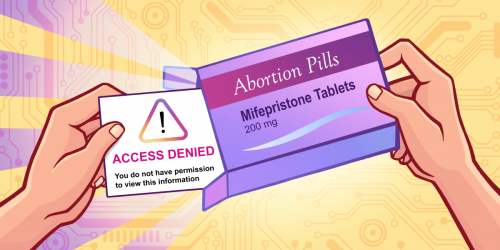Philadelphia—In an era when bystander recordings of police shootings have shined a much-needed light on law enforcement activities—greatly contributing to public discussion about police use of force—it’s never been more important to establish that citizen journalists have a free speech right to record and share videos of public police activity, EFF told a federal appeals court today.
“Individuals have the unambiguous right under the First Amendment to record police officers exercising their official duties in public,” said EFF Staff Attorney Sophia Cope. “Bystander videos published online have alerted the public to the use of deadly force in numerous cases—Alton Sterling, Eric Garner, Walter Scott, the list goes on. These recordings have informed the public and elected officials about what is happening on our streets. The Supreme Court has made it clear that the process of taking these photos and videos is protected by the First Amendment as an inherently expressive activity or as a form of information and news gathering, and this is true regardless of the intent of the maker at the time of the recording.”
EFF filed filed an amicus brief today with the U.S. Court of Appeals for the Third Circuit in support of two plaintiffs in consolidated cases, Fields v. City of Pennsylvania and Geraci v. City of Pennsylvania. Both plaintiffs were detained for recording the Philadelphia police in 2012 and 2013. Richard Fields, a Temple University college student, was arrested for photographing about 20 officers breaking up a house party. In a separate incident, Amanda Geraci, was detained and prevented from filming an officer arresting a participant at a public environmental protest. The appeals came after a federal judge improperly ruled earlier this year that individuals have no First Amendment right to record the police unless they do so while also engaging in a verbal confrontation with officers or otherwise expressing an intent to criticize law enforcement.
“The district court decision is wrong and could force people into dangerous altercations with police officers in order to justify recording the police,” said Cope. “Worse, if government is granted the power to restrict recording, it can control what information is available to the public about police conduct. Bystander recordings of police misconduct have repeatedly ensured that these troubling episodes receive the public attention they deserve, and we’re fighting for the right of people to continue playing such a vital role in our democracy.”
For the brief:
https://www.eff.org/document/fields-eff-amicus-brief









